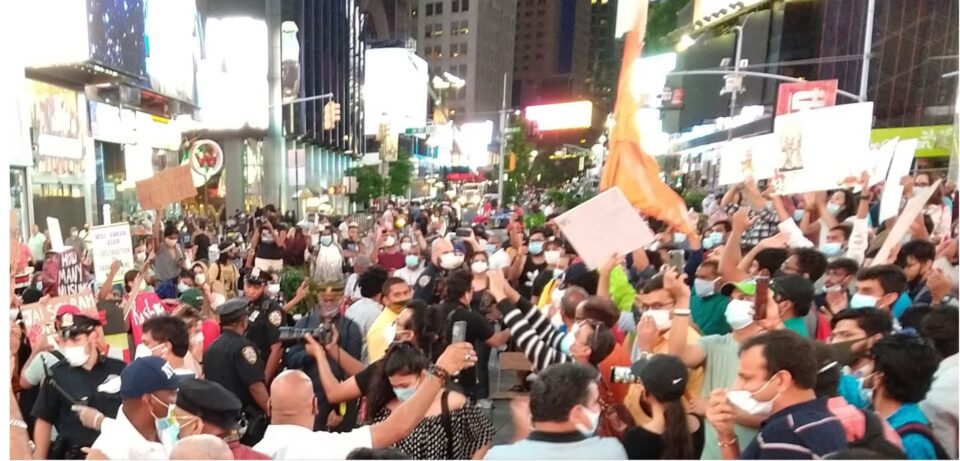Washington, June 10 (IANS) A new study has revealed that one in two Indian-Americans have reported being discriminated against in the past one year.
The study titled, ‘Social Realities of Indian Americans: Results from the 2020 Indian American Attitudes Survey’, was conducted jointly by the Carnegie Endowment for International Peace, Johns Hopkins-SAIS, and the University of Pennsylvania.
Released on Wednesday, it is the third in a series on the social, political, and foreign policy attitudes of Indian-Americans.
“One in two Indian Americans reports being discriminated against in the past one year, with discrimination based on skin color identified as the most common form of bias.
“Somewhat surprisingly, Indian Americans born in the US are much more likely to report being victims of discrimination than their foreign-born counterparts,” the study says.
The findings of the study were based on a nationally representative online survey of 1,200 Indian-American residents in the US. It was conducted between September 1 and September 20, 2020, in partnership with the research and analytics firm YouGov.
The report also found that Indian-Americans exhibit very high rates of marriage within their community.
“While eight out of 10 respondents have a spouse or partner of Indian origin, US-born Indian-Americans are four times more likely to have a spouse or partner who is of Indian origin but was born in the US,” it said.
Religion also plays an important role in the community. While 40 per cent of respondents pray at least once a day, 27 per cent attend religious services at least once a week.
The study also revealed that roughly half of all Hindu Indian-Americans identify with a caste group.
“The overwhelming majority of Hindus with a caste identity, more than eight in 10, self-identify as belonging to the category of General or upper caste.”
Meanwhile, partisan polarisation, linked to political preferences both in India and the US, is rife, within the community.
“However, this polarization is asymmetric: Democrats are much less comfortable having close friends who are Republicans than the converse. The same is true of Congress Party supporters vis-a-vis supporters of the Bharatiya Janata Party (BJP),” says the study.
The report further showed that Indian-Americans, especially members of the first generation, tend to socialize with other Indian-Americans.
“Internally, the social networks of Indian-Americans are more homogenous in terms of religion than either Indian region (state) of origin or caste.”
The study goes on to say that while only a minority of the respondents were concerned about the importation of political divisions from India to the US. But those who were, identified religion, political leadership, and political parties in India as the most common factors.
Indian-Americans currently account for the second-largest immigrant group in the US.
According to data from the 2018 American Community Survey (ACS), which is conducted by the US Census Bureau, there are 4.2 million people of Indian origin residing in the country.
Although a large proportion are not US citizens (38 per cent), roughly 2.6 million are (1.4 million are naturalized citizens and 1.2 million were born in the US).
SUBSCRIBE TO OUR YOUTUBE CHANNEL





